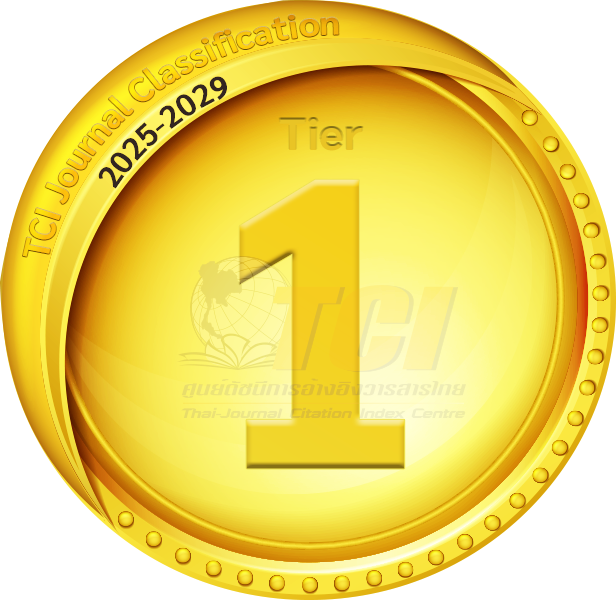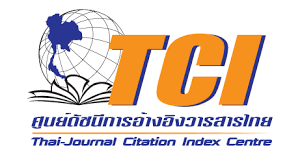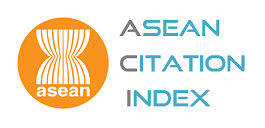Let’s Go Halves Scheme: An Evaluation of Effectiveness and Efficiency
- Thanaphon Boonyaratanakornkit , The Institute of Diplomacy and International Studies, Rangsit University, Pathum Thani, Thailand
- Nutthathirataa Withitwinyuchon, The Institute of Diplomacy and International Studies, Rangsit University, Pathum Thani, Thailand , Corresponding author, E-mail: nutthathirataa.w@rsu.ac.th
Abstract
The COVID-19 pandemic has had a significant impact on the Thai economy, leading the government to implement economic stimulus measures to assist those affected. One of these measures is the Let’s Go Halves Program, which focuses on a co-payment system between the government and the public while also supporting small entrepreneurs. This research aims to qualitatively investigate the effectiveness and efficiency of the program, as well as identify any problems encountered during its implementation from 2020 to 2021. The study also provides recommendations for future improvements to similar program. To gather opinions, ten open-ended interviews were conducted and analyzed comparatively with governmental documents. This research found that the scheme is based on the concept of the multiplier effect, in which stimulating demand factors generate purchasing power that leads to other economic activities. Additionally, the study examined six similar economic stimulus policies from different countries and found that the Let’s Go Halves Program addressed common issues such as people using government subsidies as savings and government assistance not reaching small entrepreneurs. From 2020 to 2021, this program was found to be an effective economic stimulus policy, despite challenges with program accessibility, technical compatibility, inequity in program participation, and program transparency that require attention.
Keywords: Let’s Go Halves Program, 50-50 Co-payment, effectiveness, efficiency, public policy analysis, Covid-19 economic impact
DOI: 10.14456/jcsh.2023.9
References
Almeida, F., & Curado, M. (2019). The role of observation, cognition, and imagination in Keynes’s approach to decision-making. Economia, 20(1), 15-26. https://doi.org/10.1016/j.econ.2019.03.001
Bangkok Poll. (2020). Entrepreneurs’ opinions on the Let’s Go Halves Scheme. Retrieved from https://bangkokpoll.bu.ac.th/poll/result/poll935.php?pollID=821&Topic=%E0%B8%9E%E0%B9%88%E0%B8%AD%E0%B8%84%E0%B9%89%E0%B8%B2%E0%B9%81%E0%B8%A1%E0%B9%88%E0%B8%84%E0%B9%89%E0%B8%B2%E0%B8%A7%E0%B9%88%E0%B8%B2%E0%B9%84%E0%B8%87...%E0%B8%81%E0%B8%B2%E0%B8%A3%E0%B8%82%E0%B8%B2%E0%B8%A2%E0%B9%83%E0%B8%99%E0%B9%82%E0%B8%84%E0%B8%A3%E0%B8%87%E0%B8%81%E0%B8%B2%E0%B8%A3%E0%B8%84%E0%B8%99%E0%B8%A5%E0%B8%B0%E0%B8%84%E0%B8%A3%E0%B8%B6%E0%B9%88%E0%B8%87&fileDoc=poll935.pdf
Bangkok Poll. (2021). Opinions of Thai people on the Let’s Go Halves Scheme’s forth phase. Retrieved from https://bangkokpoll.bu.ac.th/poll/result/poll971.php?pollID=856&Topic=%E0%B8%84%E0%B8%99%E0%B9%84%E0%B8%97%E0%B8%A2%E0%B8%81%E0%B8%B1%E0%B8%9A%E0%B9%82%E0%B8%84%E0%B8%A3%E0%B8%87%E0%B8%81%E0%B8%B2%E0%B8%A3%E0%B8%84%E0%B8%99%E0%B8%A5%E0%B8%B0%E0%B8%84%E0%B8%A3%E0%B8%B6%E0%B9%88%E0%B8%87%E0%B9%80%E0%B8%9F%E0%B8%AA%204&fileDoc=poll971.pdf
Boonmak, K. (2021). The satisfaction factors affecting the effectiveness of the 50-50 co-payment scheme of the government for the beneficiaries. Journal of Double Degree Program in Public Administration and Business Administration, 1-13. Retrieved from http://www.mpa-mba.ru.ac.th/images/Project/treatise_bangkok14_09092021/6217950080.pdf
Bui, D., Dräger, L., Hayo, B., & Nghiem, G. (2022). The effects of fiscal policy on households during the COVID-19 pandemic: Evidence from Thailand and Vietnam. World Development, 153, Article 105828. https://doi.org/10.1016/j.worlddev.2022.105828
Chetty, R., Friedman, J. N., & Stepner, M. (2020). The economic impacts of COVID-19: Evidence from a new public database built using private sector data (No. w27431). national Bureau of economic research. https://doi.org/10.3386/w27431
Co-payment scheme frauds. (2020, December 18). Thairath. Retrieved from https://www.thairath.co.th/business/economics/1997443
COVID slams Thai economy. (2021, August 23). TNN. Retrieved from https://www.tnnthailand.com/news/tnnexclusive/88861/
Fetzer, T. (2021). Subsidising the spread of covid-19: Evidence from the UK’s eat-out-to-help-out scheme. The Economic Journal, 132(643), 1200-1217. https://doi.org/10.1093/ej/ueab074
Guerrieri, V., Lorenzoni, G., Straub, L., & Werning, I. (2022). Macroeconomic implications of COVID-19: Can negative supply shocks cause demand shortages?. American Economic Review, 112(5), 1437-1474. https://doi.org/10.1257/aer.20201063
Hoseini, M., & Beck, T. (2020). Emergency loans and consumption–evidence from covid-19 in iran. Covid Economics, 45(28), 111-146. http://dx.doi.org/10.2139/ssrn.3683572
Kasikorn Research Center. (2020). Let's go halves" program: To reduce cost burdens for consumers and increase sales volumes for retail stores. Retrieved from https://kasikornresearch.com/en/analysis/k-social-media/Pages/Half-Policy-FB-02102020.aspx
Kaneda, M., Kubota, S., & Tanaka, S. (2021). Who spent their COVID-19 stimulus payment? Evidence from personal finance software in Japan. The Japanese Economic Review, 72(3), 409-437. https://doi.org/10.1007/s42973-021-00080-0
Kim, M. J., & Lee, S. (2021). Can stimulus checks boost an economy under COVID-19? Evidence from South Korea. International Economic Journal, 35(1), 1-12. https://doi.org/10.1080/10168737.2020.1864435
KrungSri Research. (2021). The impact of Covid-19 on the Thai economy and SME. Retrieved from https://www.krungsri.com/th/plearn-plearn/covid19-newnormal-with-sme
Lin, F., & Chen, W. (2020). Did the consumption voucher scheme stimulate the economy? Evidence from smooth time-varying cointegration analysis. Sustainability, 12(12), Article 4895. https://doi.org/10.3390/su12124895
Marome, W., & Shaw, R. (2021). COVID-19 response in Thailand and its implications on future preparedness. International journal of environmental research and public health, 18(3), Article 1089. https://doi.org/10.3390/ijerph18031089
McConnell, C. R., Brue, S. L., & Flynn, S. M. (2018). Economics: Principles, problems, and policies. New York, NY: McGraw-Hill Education.
Ministry of Finance. (2020). Annual report 2563 (Vol. 104). Retrieved from https://www.mof.go.th/th/view/attachment/file/3135383931/563-ebook5.pdf
Osterrieder, A., Cuman, G., Pan-Ngum, W., Cheah, P. K., Cheah, P. K., Peerawaranun, P., ... & Cheah, P. Y. (2021). Economic and social impacts of COVID-19 and public health measures: results from an anonymous online survey in Thailand, Malaysia, the UK, Italy and Slovenia. BMJ open, 11(7), Article e046863. http://dx.doi.org/10.1136/bmjopen-2020-046863
Pampillón, N. G., Chaim, G. N., & Ziegler, K. (2021). Recovering from the first Covid-19 lockdown: Economic impacts of the UK's Eat Out to Help Out Scheme. Retrieved from https://cep.lse.ac.uk/pubs/download/cepcovid-19-018.pdf
The Center for Economic and Business Forecasting University of the Thai Chamber. (2020). Results of the confidence survey on the Thai Economy for November 2020. Retrieved from https://cebf.utcc.ac.th/index_number_en.php?page=2&typeid=1
Tily, G., & Keynes, J. M. (2007). Keynes's general theory, the rate of interest and Keynesian Economics: Keynes betrayed. New York: Palgrave Macmillan.
Todt, D., Meister, T. L., Tamele, B., Howes, J., Paulmann, D., Becker, B., ... & Steinmann, E. (2021). A realistic transfer method reveals low risk of SARS-CoV-2 transmission via contaminated euro coins and banknotes. IScience, 24(8). https://doi.org/10.1016/j.isci.2021.102908
Yongjiranon, C. (2020, March 21). Bangkok closes shopping malls 22 March - 12 April 2020. Techsauce. Retrieved from https://techsauce.co/en/news/covid-19-thailand-bangkok
Yuktadatta, P., Ono, S., Khan, M. S. R., & Kadoya, Y. (2022). Satisfaction with the COVID-19 economic stimulus policy: A study of the special cash payment policy for residents of japan. Sustainability, 14(6), Article 3401. https://doi.org/10.3390/su14063401

Indexed in


Search